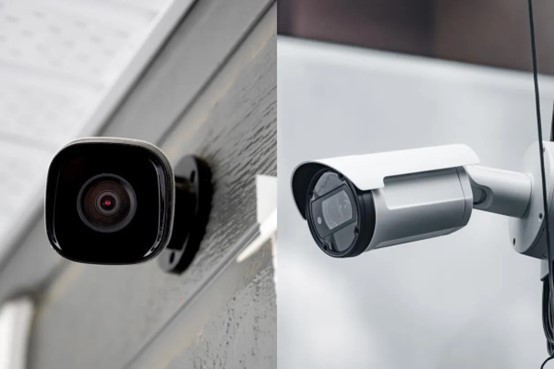views

In the world of surveillance, the debate between wireless and wired cameras is ongoing. Each type offers distinct advantages and considerations that can influence their suitability for specific environments and needs.
This article aims to provide a comprehensive overview, helping you decide which system might be best for your security needs.
Introduction to Surveillance Technologies
Before diving into the specifics of wireless versus wired cameras, it's essential to understand the basic components that make up these systems. Surveillance cameras, whether wireless or wired, are crucial elements of modern security systems.
They act as the eyes of your security operation, capturing video footage that can be used for monitoring, evidence, and deterrence.
Understanding Wired Surveillance Cameras
Wired cameras are the traditional choice for security systems. They are directly connected to a recording and storage device via cables. This setup typically requires more extensive installation efforts as it involves running cables from each camera to the power source and data storage or viewing stations.
Reliability and Performance: Wired cameras are known for their reliability. The direct physical connection to the network ensures a stable and constant signal. This means there are fewer interruptions in video quality, making them ideal for environments where maintaining constant surveillance is critical.
Security: From a security standpoint, wired systems are less susceptible to interference and are not prone to the same security vulnerabilities as wireless networks. There is no risk of signal interception, which is a concern with wireless transmission.
Installation Considerations: The primary drawback of wired cameras is the installation process. Installing these systems can be intrusive, often requiring drilling and the permanent placement of cables. This might not be suitable for all types of buildings, especially historical structures or those where physical alterations are undesirable.
Exploring Wireless Surveillance Cameras
Wireless cameras represent the modern evolution of surveillance technology. These cameras connect to your security system via wireless signals, which can greatly simplify the installation process.
Flexibility and Ease of Installation: The most significant advantage of wireless cameras is their flexibility. They can be placed almost anywhere within the range of your wireless network. Installation is usually straightforward, often as simple as mounting the camera and connecting it to your network. This makes wireless cameras particularly appealing for temporary setups or historical buildings where minimal impact is desired.
Scalability: Wireless systems are easily scalable. Adding new cameras to an existing network is generally simple, allowing security systems to grow and adapt to changing requirements without the need for extensive rewiring.
Potential Drawbacks: While wireless cameras offer convenience and flexibility, they have some vulnerabilities. Wireless signals can be subject to interference from various electronic devices, which can degrade video quality. Moreover, the security of a wireless system is heavily dependent on the strength of its encryption and network security practices. Without proper security measures, wireless cameras can be susceptible to hacking.
Comparative Analysis
When deciding between wireless and wired cameras, several factors come into play:
- Environment: For environments that require uninterrupted and high-quality video surveillance, such as banks or government buildings, wired cameras might be more appropriate. In contrast, for homes or temporary event monitoring, wireless cameras offer sufficient quality and easier installation.
- Security Needs: If the highest level of security integrity is required, wired systems provide an edge due to their immunity to hacking compared to wireless solutions.
- Budget and Flexibility: Wireless cameras might offer a cost-effective solution for those needing quick deployment and minimal installation disruption. However, for large-scale permanent installations, the long-term reliability of wired systems could prove more economical.
The Role of Professional Security Camera Companies
Whether you choose wired or wireless cameras, partnering with a reputable Security Camera Company in Canada can significantly enhance the effectiveness of your security system.
These companies provide professional installation, regular maintenance, and expert advice on the best type of system for your specific requirements.
Conclusion
Both wireless and wired cameras have their rightful place in the surveillance industry. Choosing the right type depends on a variety of factors, including your specific security needs, the physical environment, and your budget. By understanding the advantages and limitations of each, you can make an informed decision that ensures robust security for your property.
For those considering the installation of Outdoor Surveillance Cameras, it's important to consider all these aspects and consult with professionals to make the most informed decision possible. Remember, the right surveillance setup can significantly enhance the safety and security of your premises.
























Comments
0 comment